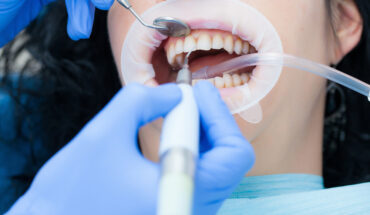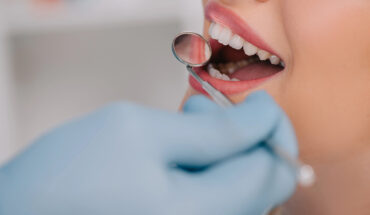
Dental hygiene is always considered as an indication of people’s health. Contrary to the commonly held belief that plaque and other forms of poor oral hygiene only affect the aesthetics of an individual’s smile, research shows that it has disastrous effects on an individual’s health, perceived body image and social relationships. A lot of people move around practicing good oral hygiene and this is actually a serious disservice to their bodies as they end up with many diseases. In this article we shall illustrate the symptoms of poor oral health risk factors and provide recommendations on how to enhance your dental situation and your quality of life as a whole, Porcelain veneers inclusive.
The Symptoms of Poor Oral Health
Several different warning signs of oral health issues exist, some of which can be relatively ‘benign’ but which worsen over time. Some common symptoms include:
Tooth Decay and Cavities
Among all indicators of oral health, cavities are among the most obvious and visible results of their deterioration. Cavities begin with plaque on the teeth and, if not treated, will progress to cavities. It might be of a hidden pain at the initial stages but it may lead to extreme tooth ach and infections in case it is not treated.
Gum Disease
Gingivitis is the early stage of gum disease, which may cause the gums to become red, swollen and bleed when brushing or flossing. If left untreated it can develop into periodontitis, a severe form of gum disease characterized by loss of teeth and can also worsen several generalized health conditions including heart diseases and diabetes.
Stained or Discolored Teeth
Yellowing of the teeth may be caused by inadequate brushing or flossing, tobacco use or taking too many dark food and beverages. Even when the stains do not pose a direct danger to an individual’s health they negatively affect one’s self image and would make people shy away from smiling.
Tooth Sensitivity
Feeling soreness or a burning sensation when eating hot or cold foods or sweets might mean that the enamel is worn out, you have cavities, or receding gums. With tooth sensitivity, one should seek professional help because this may be the first sign of other serious dental problems.
The Risks of Poor Oral Health
Oral diseases are often associated with one or many diseases, thus if you fail to practice good oral hygiene, your general health will be affected. Research also shows that many other diseases of afflictions have been associated with poor oral hygiene, not only is the risk to have cavity or gum diseases.
Heart Disease
Many other researches have confirmed that oral health and cardiovascular ailment are related in one way or another. Periodental disease that triggers inflammation can precipitate atherosclerosis – the hardening of the blood vessels that supply the heart and brain and thereby predispose one to a heart attack or a stroke.
Diabetes Complications
Those with diabetes get more prone to infections; this includes the gum area. On the other hand, oral problems seem to worsen if a person has diabetes, and managing blood glucose becomes a challenge.
Respiratory Infections
Some strains can be inhaled into lungs causing respiratory infections such as pneumonia from bacterial carriage in the mouth. This is more worrying for those with lymphatic immune disorders or Gifted permanent lung diseases.
Significance in Relation to Mental Health and social life
The quality of an individual’s oral health has a negative effect on their mental health. A poor smile can make individuals withdraw socially, get anxious and even get depressed. Any kind of dental problem that causes a person to have difficulties in chewing his or her foods or in speaking comprehensible in public can reduce that person’s ability to mix with others, thus affecting his or her lives.
Measures on How to Enhance Oral Hygiene
Fortunately a large number of the effects of poor oral health can be either prevented or can be treated. EEE In conclusion, practicing regular oral hygiene and seeking professional attention at the right times curtails the affects of poor oral health. Below are some essential solutions:
Regular Brushing and Flossing
Brush teeth at least twice a day and floss at least once per day are the most basic guidelines to proper mouth hygiene. Such habits assist in preventing formation of cavities and gum diseases since they get rid of the plaques. Fluoride tooth pastes may also help to build a layer in teeth and thereby minimize the possibilities of a tooth decay progress.
Routine Dental Visits
People ought to visit a dentist for a checkup and cleaning at least once in three months to avoid worsening of these conditions. Dentists can find signs of gum diseases cavities or any other problem that may be there and take proper action.
Getting Porcelain Veneers for a Better, Healthy and Confident Smile
For individuals dealing with damaged, discolored, or misshapen teeth, porcelain veneers offer long-lasting solutions. Veneers are thin layers of medical ceramic that is crafted in a way that it fits to the front of a tooth, in a manner that is esthetically pleasing. It is especially useful for those patients whose teeth are discolored and are not easy to whiten, those with cracked teeth and gaps between them.
Apart from making nice-looking smiles, it also prevents any more deterioration and damage in the affected teeth making it moresume in oral health. Because they overlay worn or chipped teeth, they help form a seal against bacteria that contributes to decay, while offering a functional and aesthetic benefit.
Balanced Diet and Hydration
Proper nutrition is very important in order to have good teeth and gums. Calcium and phosphorous included foods such as dairy products build strong enamel while vitamin D promotes the flow of saliva within the mouth to clean itself by eating crunchy fruits and raw vegetables. It is recommended to take a lot of water particularly after eating foods that create stains and use it to rinse out some acids harmful to teeth.
Quitting Tobacco Use
Tobacco use in any form increases the rate of ill health and poor dental health is one of the worst affected areas. This being the case, it is associated with gum diseases, tooth loss, and oral cancer. For the record, giving up tobacco has astounding benefits on oral and general health.
The Road to a Healthier, Happier Life
Caring for your teeth and gums is not only about making sure your teeth are white and clean, it’s about looking after your wellbeing. Addressing the symptoms and risks you identify with unhealthy teeth will lower your likelihood of developing other diseases and enhancing your mental and social health. Preventative measures include consistent brushing and flossing and dental check-ups Also, there are complex remedies which include porcelain veneers so as to regain that healthy mouth and be that cheerful alive person.
Understanding the impact of poor oral health on your quality of life underscores the importance of preventive care and early intervention. From aesthetic enhancements or big fixes that fulfill the promise of cosmetic dentistry to the choices made with an eye on what is to come, taking command of your care may result in the gains that can make a difference in the quality of your life.




